Uniforms have always been a symbol of identity, unity, and professionalism in the workplace. But what is the meaning of uniform workers? Beyond being a standard dress code, uniforms represent the culture of an organization, its values, and the role of each employee. This article, FMF will explore the meaning of uniform workers, why uniforms are important, their benefits, types of workplace uniforms, and how they shape company branding and employee morale.
Understanding the Meaning of Uniform Workers
The phrase “uniform workers” refers to employees who wear a standardized outfit provided by their organization. The meaning is not limited to clothing—it conveys deeper values:
-
Professionalism: Uniforms present a polished and consistent appearance.
-
Equality: All workers wear the same attire, reducing visible social or economic differences.
-
Unity: Uniforms symbolize teamwork and collective responsibility.
-
Identity: They show affiliation with a company, brand, or institution.
So, when we ask “what is the meaning of uniform workers?” the answer goes beyond the physical garment. It is about shared identity and collective representation.
Why Are Uniforms Important for Workers?
Uniforms play a vital role in workplaces for several reasons:
1. Building a Professional Image
Uniforms create a consistent and professional look that enhances a company’s reputation. For example, customers tend to trust employees in clean, branded uniforms.
2. Promoting Equality
Regardless of background, all employees are equal when wearing the same uniform. This reduces competition over fashion or personal style in the workplace.
3. Enhancing Safety
In industries like construction, manufacturing, and healthcare, uniforms are designed with protective materials to safeguard workers. This functional meaning is as important as the symbolic one.
4. Creating Team Spirit
Uniforms foster unity, reminding employees they are part of a team working toward common goals.
5. Marketing and Branding
Company logos on uniforms turn employees into brand ambassadors, increasing brand recognition.
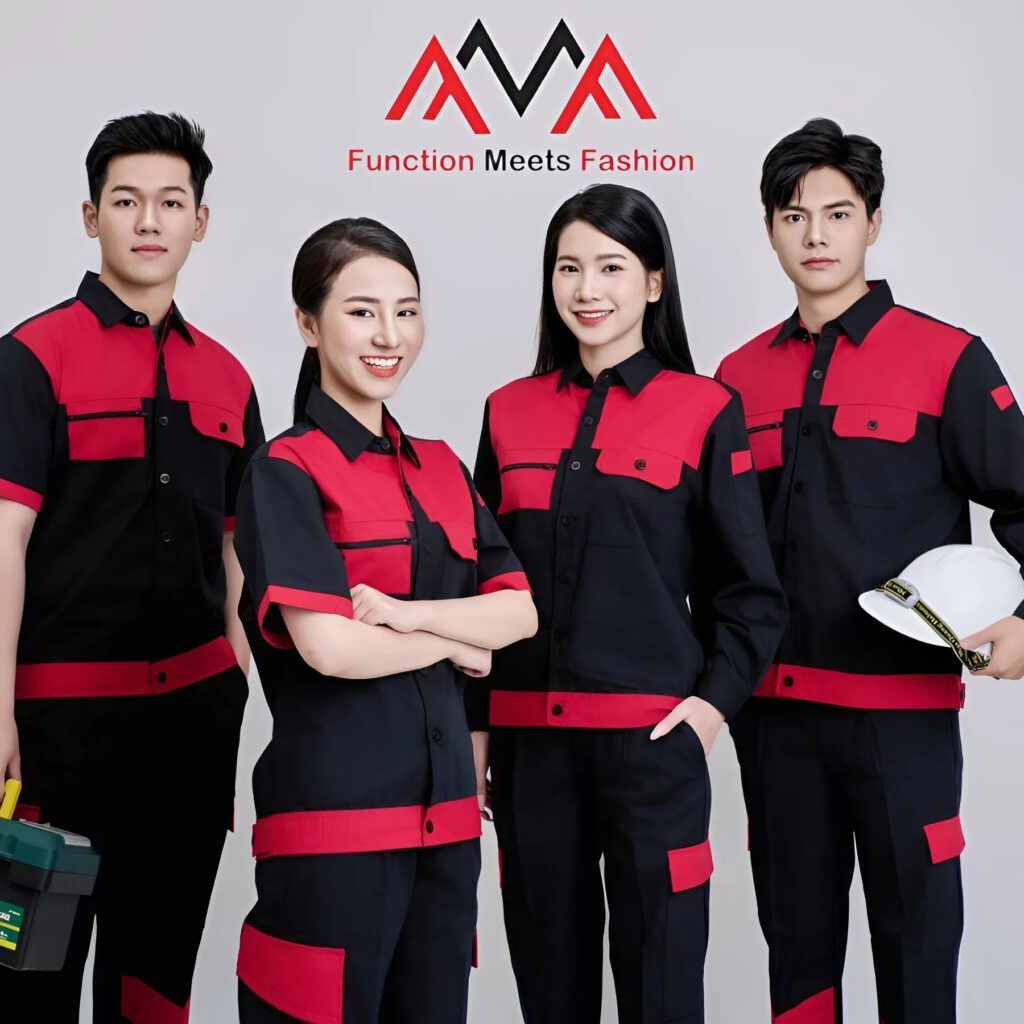
Benefits of Workers Wearing Uniforms
The benefits of uniforms extend to both employers and employees.
-
For Companies: Strengthened brand image, improved customer trust, easier staff identification.
-
For Employees: Reduced clothing costs, sense of belonging, and safety in specific industries.
-
For Customers: Clear identification of staff, confidence in service, and consistent brand experience.
This explains why, when people search “what is the meaning of uniform workers?”, the answer always includes practical and psychological benefits.
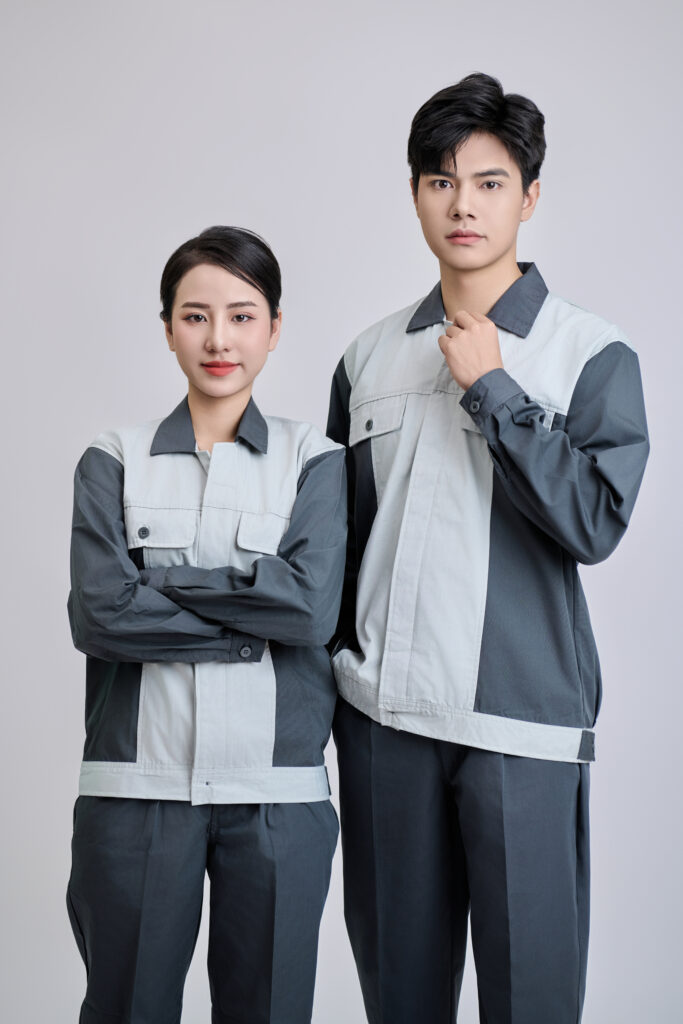
Types of Workplace Uniforms
Uniforms vary across industries, each reflecting its unique purpose:
1. Corporate Uniforms
Suits, shirts, and skirts worn in offices symbolize professionalism and elegance.
2. Industrial and Safety Uniforms
Protective gear, high-visibility jackets, helmets, and fire-resistant clothing for workers in factories, construction sites, or mining.
3. Healthcare Uniforms
Scrubs, lab coats, and medical gowns help maintain hygiene and safety while identifying roles of doctors, nurses, or technicians.
4. Service Industry Uniforms
Hospitality workers, retail staff, and airline crew wear uniforms that highlight brand identity and customer service focus.
5. School Uniforms
While not workplace uniforms, school uniforms also teach discipline, unity, and equality, preparing students for future work environments.
The Symbolic Meaning of Uniform Workers
Uniforms carry meanings that go beyond practical use. They reflect:
-
Discipline: A uniform reminds workers of rules and responsibility.
-
Pride: Employees often feel proud wearing a uniform that represents a reputable company.
-
Belonging: A strong sense of belonging enhances loyalty and reduces turnover.
-
Authority: Uniforms in law enforcement or military signify authority and responsibility.
Thus, asking “what is the meaning of uniform workers?” touches both the practical function and the symbolic values.
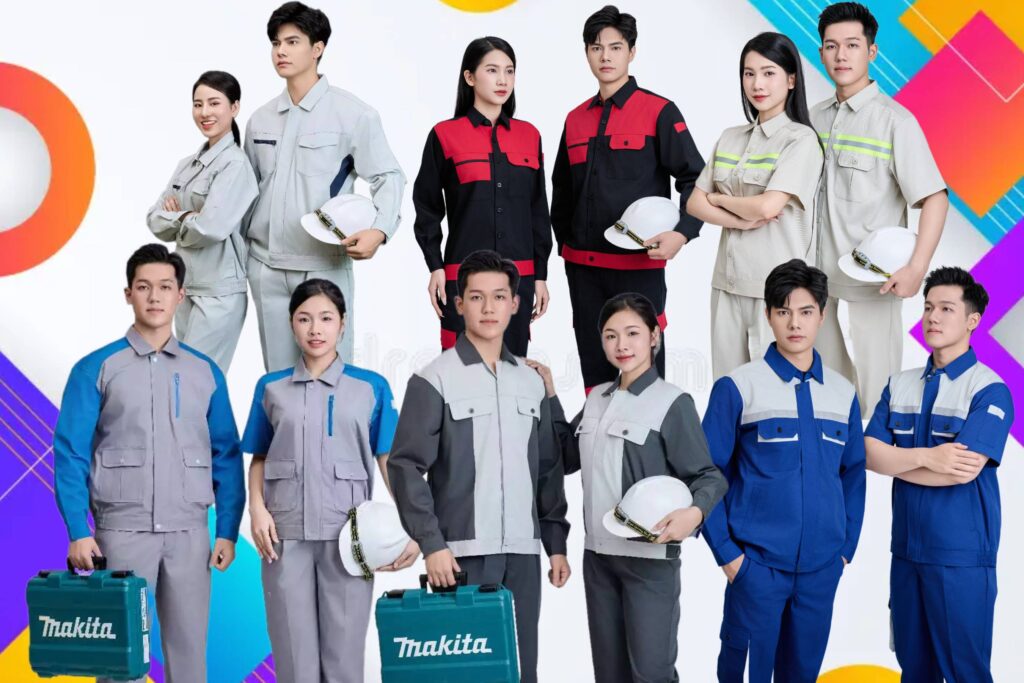
Challenges and Criticisms of Uniforms
Although uniforms have many benefits, there are also challenges:
-
Lack of Individual Expression: Workers may feel limited in personal style.
-
Comfort Issues: Poor-quality uniforms can cause discomfort.
-
Cost to Employers: Designing and supplying uniforms requires investment.
-
Resistance from Staff: Some employees may resist uniforms if they feel unnecessary.
To overcome these challenges, companies need to involve employees in uniform decisions, prioritize comfort, and focus on quality.
The Future of Worker Uniforms
Workplace fashion evolves with time. The future of uniforms will likely include:
-
Smart Fabrics: Breathable, lightweight, and climate-adaptive materials.
-
Sustainable Materials: Eco-friendly fabrics to support environmental responsibility.
-
Flexible Designs: Combining comfort with professional appearance.
-
Personalization Options: Adding workers’ names or customizable features for individuality.
This shows that the meaning of uniform workers is dynamic, adapting to modern needs and values.

How FMF (Example Company) Prepares for Trends
Forward-thinking uniform companies like FMF focus on:
-
Investing in premium, sustainable fabrics.
-
Offering stylish yet practical designs.
-
Providing printing and embroidery customization services.
-
Expanding product lines to serve education, corporate, and industrial clients.
By staying ahead of trends, uniform providers ensure that the meaning of uniforms for workers continues to evolve positively.
Conclusion
So, what is the meaning of uniform workers? It is far more than clothing—it is about professionalism, unity, safety, branding, and pride. Uniforms create a strong link between employees and organizations, while also shaping how customers and society perceive the brand.
From corporate offices to construction sites, uniforms remain essential to modern workplaces. As trends evolve toward comfort, sustainability, and personalization, the meaning of uniform workers continues to grow, reinforcing their importance in both function and symbolism.
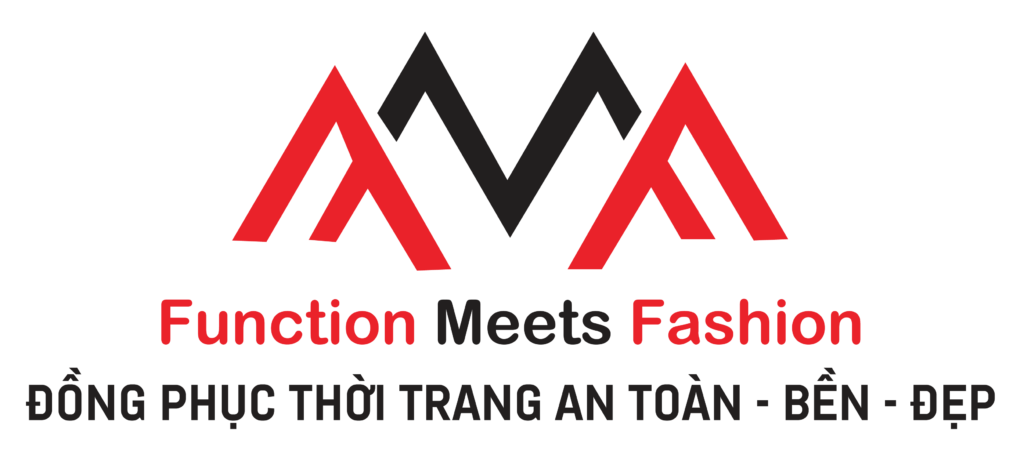



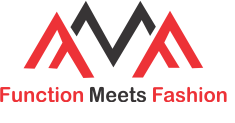
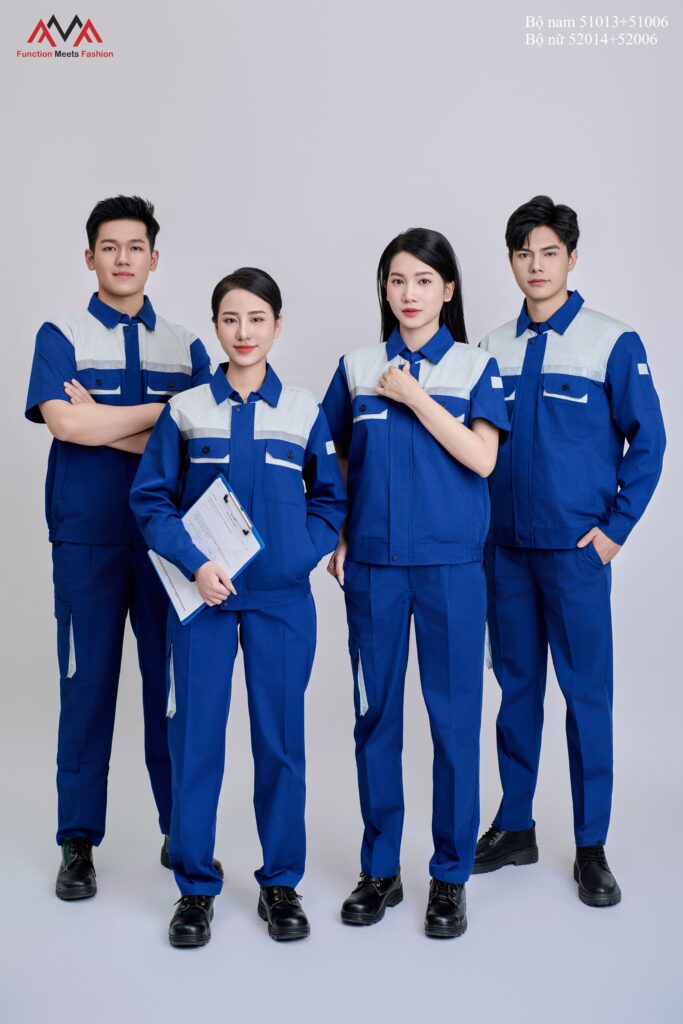
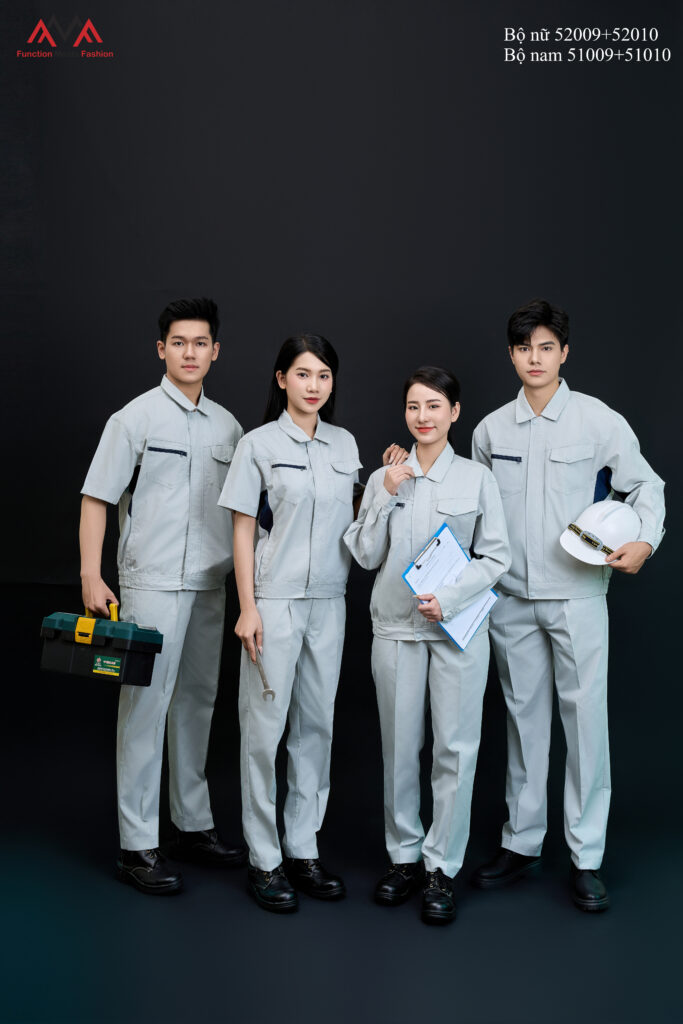

 Tiếng Việt
Tiếng Việt

Sản phẩm
Red And Black Short-Sleeve Workwear Set
Red And Black Long-Sleeve Workwear Set
Blue And Grey Short-sleeve workwear set
BLUE+GREY LONG-SLEEVED WORKSUIT
CHARCOAL+GREY SHORT-SLEEVED WORKWEAR
CHARCOAL+GREY LONG-SLEEVED WORKWEAR
SHORT-SLEEVED REFLECTIVE GRAY WORKSUIT
LONG-SLEEVED REFLECTIVE GRAY WORKSUIT
GREY COORDINATE LONG-SLEEVED NAVY
NAVY POLO JERSEY
POLO BLUE+NAVY JERSEYS FOR MEN AND WOMEN
POLO JERSEY NAVY+WHITE MEN’S/WOMEN’S